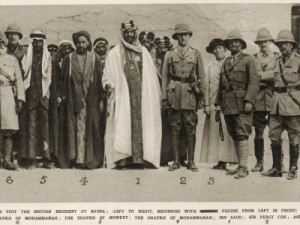“Every object in a state of uniform motion tends to remain in that state of motion unless an external force is applied to it…….” Newton’s First Law of Motion (one version)
“Iranian Foreign Minister Mohammad Javad Zarif on Wednesday accused the United States of being “obsessed” with sanctions against his country, on the eve of new bilateral talks on a nuclear deal……….”
Apparently imposing these financial sanctions (actually blockades) can become addictive. Anyone who does not know any better, and that probably includes me, might think that the Obama administration has become addicted to inflicting sanctions on other nations and entities and corporations and whatever and whoever catches its fancy in the wrong way. The U.S. Congress is an even more avid imposer of these sanctions, it leads the way: its hawkish threats scare and force the administration to be “proactive” in these matters.
Governments and despots (only a few of them) and peoples and groups and parties and unions and gangs and possibly bad musicians, probably even alumni associations are targeted. From East Asia through Russia and Iran and Lebanon and Syria and Africa and into the threatening little superpower of Cuba, after passing through the mighty empire of Venezuela. Even as the Iran+P5+1 talks were resuming this summer, some evil genius somewhere in Washington was churning out new plans for tightening the screws on the Iranians. Just to keep the mullahs on their toes, or maybe just to let the hotheads in Congress and Knesset know that they have nothing to worry about.
Yesterday, reports came out that the US (and possibly other Western powers) are considering imposing sanctions against the Houthis of Yemen. The Houthis? They are one of the many tribal/political/ethnic/religious factions that dot the Yemeni landscape. But they have nothing to do with Al Qaeda or any other Wahhabi terrorist groups: in fact they are their enemies. They have no goals beyond their own region of Yemen, so what would they be sanctioned for? Sanctioned for daring to protest against their fundamentalist military government and marching on the capital Sana’a. I would have thought the Western powers had their hands full trying to drone the Saudi-Yemeni Al-Qaeda (AQAP) out of existence (often taking a passel of innocent Yemeni civilians along as collateral damage). Or maybe someone in Washington got a persuasive call from someone with a golden telephone in Riyadh or Abu Dhabi.
Anyway, it is not clear how financial sanctions can affect the Houthis of the rugged territory of northern Yemen. As I recall from my past days of extensive travel, the economies of some remote regions are not very monetized, unlike Washington DC (not so many lobbyists with a lot of money hanging around Sanaa or Ouagadougou). These fellows are not known to fly to Las Vegas or Nice or even Dubai, or to own foreign property. Unlike the petroleum princes and potentates, they do not even frequent the diversion-filled joints of Beirut or Cairo or Bangkok. Unlike the Saudi princes, they never fly into the sin-filled cities of Morocco. So, they don’t have as much need for access to foreign exchange, be it dollars or euros or riyals.
Personally, sometimes I think they impose some of the sanctions jut because they can. The mechanisms and the people are in place, so there is some bureaucratic inertia involved, unless acted upon by an external force, as Isaac Newton taught us so long ago. There are no other world currencies that compete with the dollar, and no institution that can compete with SWIFT. SWIFTing a country or an organization is easy. But the Houthis?
Cheers
Mohammed Haider Ghuloum





